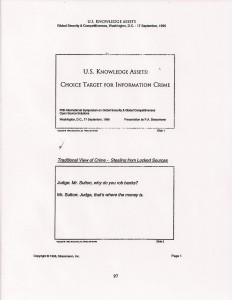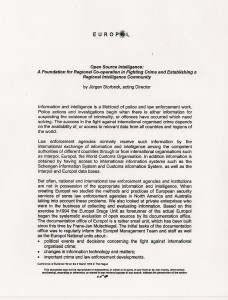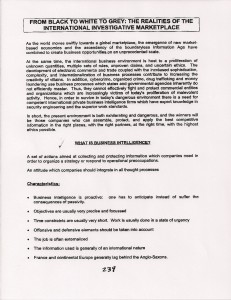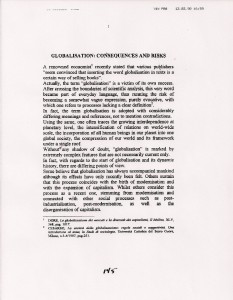1998 Baumlin (FR) From Black to White to Gray: The Realities of the International Investigative Marketplace
Commercial Intelligence, Historic Contributions, Law Enforcement1998 Cucuzza (IT) Globalization Consequences and Risk (Crime, Law Enforcement, and Open Sources of Information)
Historic Contributions, Law Enforcement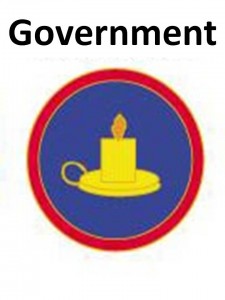
EuroIntel '98: Servizio Centrale di Investigazione sulla Criminalità Organizzata (SCICO) della Guardia di Finanza, for its emerging commitment to the use of open sources in the war on organized crime.
General Osvaldo Cucuzzapersonally presented his reflections on the consequences and risks of globalization, with a focus on the role of open sources in support of the law enforcement mission.
1998 Fry (UK) Open Sources and Law Enforcement–Learning Curves and Pain Barriers within Scotland Yard (Metropolitan Police of London)
Historic Contributions, Law Enforcement
Alan Fry is a household name in the United Kingdom, where he is “on the spot” with counter-terrorism. What few know is that he is bracketed by Sir David Veness, today the Deputy Secretary of the United Nations for Safety and Security, who led anti-terrorism for a very long time and created the first deep Open Source Intelligence (OSINT) unit in modern law enforcement history, and Detective Constable Steve Edwards, who created the unit. With thanks to Steve Edwards, one of the true OSINT pioneers, below is the presentation by then Deputy Assistant Commissioner Fry.
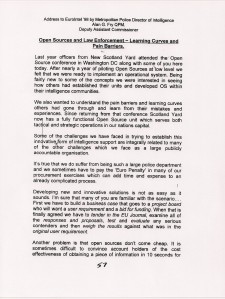
1998 Steele (US) Open Source Intelligence: An Orientation for Law Enforcement Professionals
Briefings & Lectures, Law EnforcementThe below outline was created for a special meeting of the top law enforcement officers in Australia during the October 1998 event organzed by then LtCol Ian Wing AU, today a Colonel and a PhD to boot. He and Paul Roger, along with Winston Maiki (RIP) and Babette Bnesousson are the leaders in Australia.
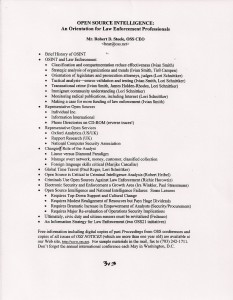
1996 Roger (AU) Open Source Strategies for Law Enforcement
Historic Contributions, Law Enforcement
Paul Roger entered mid-career working the Hong Kong Organized Crime target with a special focus on the triads. He mastered the art of working with indigenous street-level sources while leveraging back office colonial processing power. In Australia he invented “time travel” and this was the most provocative element of his OSS '96 presentation, below. We have failed to study the history of organized crime such that we can stop it in its tracks as it migrates from Italy to Scotland, or Latin America to West Africa.
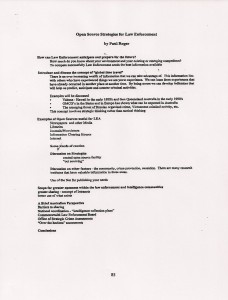
1996 Strassmann (US) U.S. Knowledge Assets: Choice Traget for Information Crime
Commerce, Commercial Intelligence, Government, Historic Contributions, Law Enforcement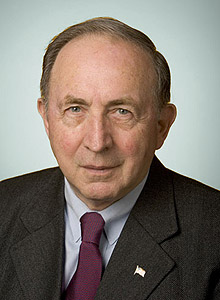
Whenever we get depressed about the inability of large organizations to “hear” we just remind ourselves that no one listens to Brent Scowcroft or Paul Strassmann either despite their stature as intellectual giants.
Strassmann is an enterprise unto himself after decades of being a CIO for Xerox, DoD, and then a reprise at NASA for Sean O'Keefe. His books are among the most vital for executives seeking to actually understand the business value of computing. Below is his presentation to OSS '96.
